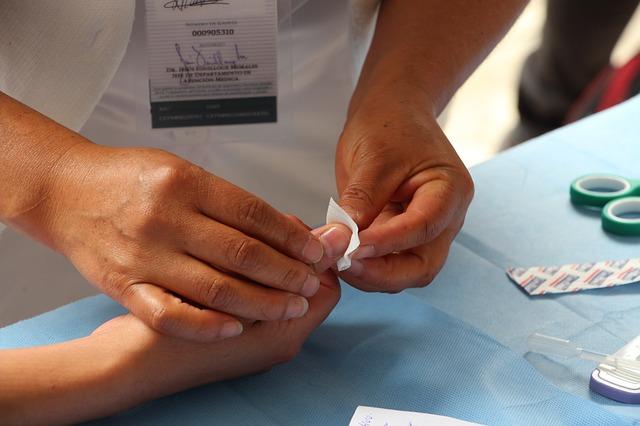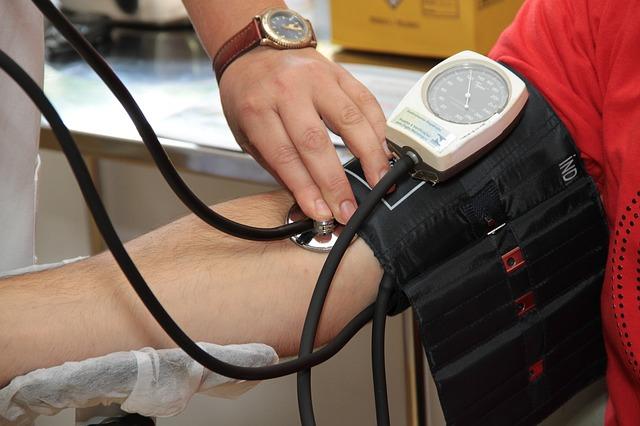Why We Think Nurses Are Underappreciated and Deserve a Big Thank You

As one of the most underappreciated careers in the world, nurses sincerely see some of the worst things in the world. The problem is they are required to assist with different medical concerns but for a fraction of the salary of a surgeon and with much less appreciation than a general practitioner. There are plenty of ways that you can see nurses are underappreciated, especially if you’re the type of person that visits the hospital frequently.
It’s important to not only learn how you can help to make your nurse feel more appreciated, but to also help to make their job easier because at the end of the day, they likely treat 10 terrible patients for every 2 positive ones.
1. Unrecognized Work

It’s more often than you think when the work a nurse does isn’t recognized. Their job description entails much more than what you would see in a TV show or a movie. Not only are they responsible for the thorough medical concerns of a patient, but they are also responsible for emotional support as well. Whether it’s in conversation with a doctor or with a patient, it’s far too often for nurses to never hear a “Good job” or “Great catch” when they’re doing their job.
This would seemingly be difficult for anyone to deal with. Imagine, you’re at work and you make a huge breakthrough that saves a campaign your boss is running but neither the client nor your boss take notice. It’s demoralizing and even though you may have the option to quit, nurses don’t. They move onto the next patient only to have their work go unnoticed once again.
2. Never Receiving a “Thanks”
If there’s one thing nurses can agree on it’s that their careers are essentially “Thankless”, meaning that it’s rare, if ever, to hear a “Thank you” from staff and patients alike. As mentioned, for every 10 patients a nurse may encounter 2 positive ones. Although this is easy to understand, as patients are clearly in pain and concerned for their well being, it can be a difficult pill to swallow.

The majority of hospitals in the United States and Canada are severely understaffed, which leads to hospitals needing to overwork their already understaffed nurses. There are plenty of times when these professionals need to come in on their days off and work hours that even the strongest person would find to be overwhelming.
Even if you are assuming your nurses understand that you are thankful, it never hurts to let them know.
3. Never Hearing “I’m Sorry”

Similar to rarely being thanked for the work they do, nurses will rarely be apologized to, no matter how dire the circumstances are. With their jobs, people’s lives are in their hands and it is a very high paced environment where everyone’s nerves are on end. Although it is important for nurses to understand that not everything is their fault, blame tends to be asserted on the “less-experienced” professionals in the room. Sure, the majority of nurses don’t go through the same amount of schooling as a cardiothoracic surgeon, but they are highly qualified professionals.
4. Incredibly High Expectations
It’s true that nurses do spend years in school learning what they do, but no matter how you look at it, they’re commonly seen to be one of the less experienced groups of medical professionals in a hospital. Even though doctors may look down on them, they still expect them to pull magic out of their back pockets in most situations. For example, being able to calm down patients that may be the most frustrating and hardheaded patients in the world.
This, along with being expected to work long hours and spend most of their time in the hospital can be difficult to deal with. The higher the expectations, the more difficult it is to deal with the job they’re responsible for every day of the week.
5. Being Required to Keep Going

There’s no such thing as a break when it comes to nursing, similar to any other type of medical professional. Just when you think that you’ve turned over a patient and have time for a coffee, there’s always another patient right around the corner. The human body can be your best friend but in other circumstances, it can also be your worst enemy. Unexpected outcomes can happen at any time and it’s your job to make sure you’re prepared for it.
You’ll never have the ability to slow down and catch your breath, you’re required to always be on your A-Game and prepared for absolutely anything that could be waiting for you.
6. Losing Managerial Support
At the end of the day, nursing is beginning to transition more into a lifestyle than a career, but that doesn’t mean nurses aren’t applicable to standard labor laws. It can feel relatively impossible to deal with your career if you don’t have support from your superiors, but when it comes to medical care, everyone is taking on as much as they can handle.
With patient complains, comments from physicians, and requests from people in upper administration, your managers most likely have too much on their plate. This means they may start to lose track of the importance of supporting their nurses and if it’s something that is sincerely bothering you, it’s best to schedule a convenient time to let them know how you feel.
Yes, nurses are stronger than most people realize, but it’s important to know that nurses are people as well.

The next time you find yourself in a position where you need to head to the hospital you need to put your health first but you also need to be mindful of how you treat the people around you. This is also true for doctors and other upper administration hospital professionals who are responsible for a team of nurses. The list of tasks that nurses are responsible for is relatively endless, and when they’ve been dealing with too many expectations and difficulties, it can make them want to hang up their scrubs and leave the building but they don’t. Nurses keep pulling through even the most difficult circumstances with their heads held high.
Pin for later

